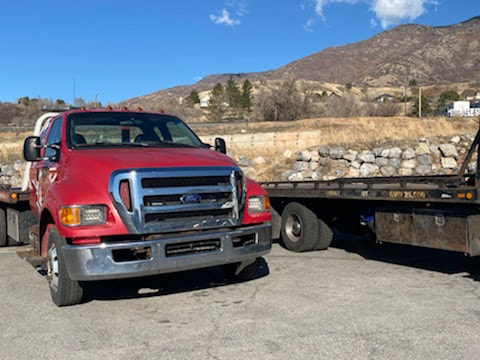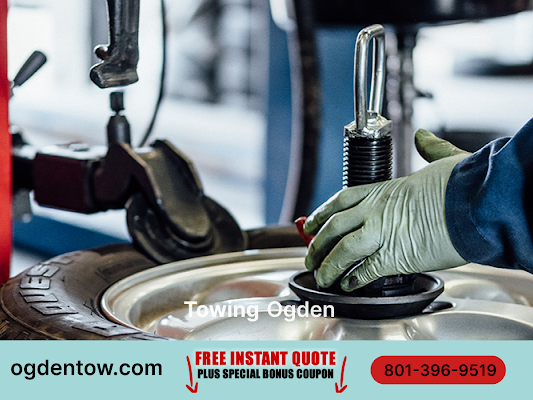Ogden Tow Ogden Country, UTAH | Why Shouldn't You Ignore a Leaking Tire?
If you have a car, you know the importance of keeping your tires in good condition. A leaking tire can cause all sorts of problems, from decreased fuel efficiency to an increased risk of accidents.
But many people ignore a leaking tire, either because they don't know how to fix it or because they think it's not a big deal. I'm here to tell you that ignoring a leaking tire is a big mistake.
Here are some reasons why you should never ignore a leaking tire:
A leaking tire can cause your car to lose fuel efficiency.
A car needs three things to run: fuel, air, and spark. If you lose any one of these, the vehicle will not run. The same is true for your brain. You need three things to be creative: ideas, analysis, and inspiration. If you lose any one of these, you will not be creative.
Many people lose ideas because they evaluate them too soon and too often. They judge their ideas before they have a chance to grow and develop. This kills creativity because it stifles new ideas before they have a chance to blossom.
Some people lose inspiration because they don’t allow themselves enough time for exploration and experimentation. They are always looking for the quickest and easiest way to do things, often leading to stagnation and a lack of creativity.

A leaking tire can increase your risk of getting into an accident.
Most people know that a leaking tire can increase your risk of getting into an accident. They may not know how to fix the problem and why it's so important to do so. In this paragraph, we'll discuss the dangers of driving on a leaking tire and how to fix the issue quickly and easily.
Driving on a leaking tire can be extremely dangerous. Not only does it make your car less stable and more difficult to control, but it also increases your risk of getting into an accident. Traveling at high speeds, a leaky tire can cause your car to skid out of control or even flip over.
If you notice one of your tires leaking, don't wait until it's too late to fix the problem. Pull over to the side of the road as soon as possible and change the tire. It's also a good idea to keep extra tires in your car, just in case something goes wrong while driving.
A leaking tire can damage the rim of your wheel, which can be expensive to repair.
A leaking tire can damage the rim of your wheel, which can be expensive to repair. If you allow a leak to go unrepaired for too long, the entire tire may need to be replaced. In the same way, minor problems in our lives can snowball into bigger ones if we don't address them early on. It's essential to deal with issues as they come up before they have a chance to cause more damage.
Knowing how to deal with a problem when it first arises can be challenging. Often, we don't want to make things worse by doing something wrong. However, it's usually better to take some action than to do nothing at all. If you're unsure what to do, many resources are available to help you figure out the best course of action. You can ask a friend or family member for advice, search the internet for solutions, or consult a professional.
Regardless of your problem, remember that it's essential to deal with it promptly and effectively. Taking care of issues as they arise can prevent them from causing further damage down the road.

Visit Us
A leaking tire can cause a flat tire, which is a significant pain.
Most people never bother developing their creativity because they think they're not smart enough. As we've already seen, intelligence and creativity are two completely different things. Even if you're not as bright as most people, that doesn't mean you can't be highly creative. All it takes is some practice and some effort on your part.
A leaking tire can waste your time and money.
The recommended air pressure for passenger cars is usually found on a sticker inside the driver's side doorjamb or in the owner’s manual. It is also imprinted on the sidewall of every tire as PSI (pounds per square inch). The recommended pressures will vary depending on your vehicle’s weight, make, model, and weather conditions. Tires lose 1-2 PSI per month even when not used, so checking their pressure at least once a month and before long trips are essential.
